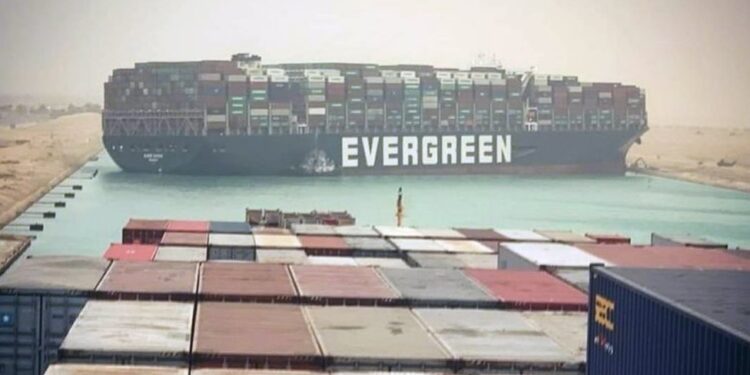The Suez Canal, one of the world’s most critical shipping lanes, was dramatically blocked in March 2021 when the massive container ship Ever Given ran aground. This blockage had severe consequences for global trade, highlighting the vulnerability of international supply chains.
The Incident
On March 23, 2021, the Ever Given, a 400-meter-long and 220,000-ton container ship operated by the Evergreen Marine Corporation, became lodged diagonally across the Suez Canal. High winds and poor visibility were cited as initial causes, but investigations later suggested human and technical errors also played a role. The ship’s bow became embedded in the canal’s eastern bank, while its stern blocked the western side, completely halting traffic in both directions.
Global Impact
The Suez Canal is a vital shortcut between Europe and Asia, handling approximately 12% of global trade. Its blockage had immediate and far-reaching consequences:
- Economic Losses: The blockage disrupted $9 billion worth of goods per day. Major shipping companies faced delays, and global supply chains were thrown into chaos.
- Rising Oil Prices: About 30% of global container traffic passes through the canal, including crude oil shipments. The disruption led to temporary spikes in oil and commodity prices.
- Stranded Ships: More than 400 vessels, including oil tankers, bulk carriers, and container ships, were stuck at both ends of the canal, forcing some to take the longer and costlier route around Africa via the Cape of Good Hope.
- Delayed Goods: The blockage caused significant delays in the delivery of essential goods, including electronics, automotive parts, and consumer products, further exacerbating global supply chain issues.
The Resolution
Efforts to free the Ever Given involved dredging sand, tugboat operations, and high tides assisting in refloating the vessel. After six days of intense work, the ship was finally refloated on March 29, 2021, allowing the canal to reopen.
Lessons Learned
The 2021 Suez Canal blockage underscored the fragility of global trade and the need for alternative shipping strategies. Following the incident, the Suez Canal Authority considered widening parts of the canal to prevent future disruptions.
This event served as a wake-up call for industries relying on just-in-time supply chains, highlighting the importance of risk management and logistical flexibility in global commerce.
newshub



Recent Comments